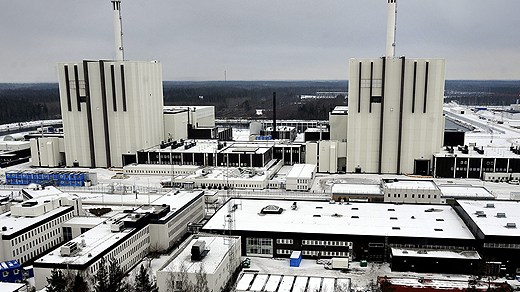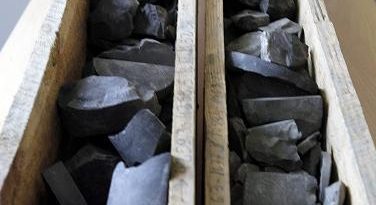Swedish Uranium Prospecting Boom
 Listen: {play}/media/jukebox/rs-uranium2.MP3
Listen: {play}/media/jukebox/rs-uranium2.MP3
High ore prices and rising demand from nuclear power stations are causing a uranium prospecting boom in Sweden.
Uranium mining was stopped in 1969 due to public opinion. Now uranium exploration companies, mainly from Canada and Australia are prospecting in nearly 250 locations around the country. Yet most local councils say they will use their veto to prevent any new mines from opening.
Sweden has close to a third (27 percent) of Europe’s uranium deposits, according to the Geological Survey of Sweden. The country imports uranium for its ten nuclear reactors.
Imports or ‘own backyard’
“More or less 50 percent of Sweden’s energy comes from nuclear power,” Folke Söderström, CEO of Mawson Energi, a Canadian owned prospecting company, told Radio Sweden.
“And we want to give the Swedish authorities the opportunity to decide where the uranium comes from – if we’re going to import it from other countries or if we’re going to take it from our own backyard.”
Local councils in Sweden have the power to veto uranium mining permits, but they cannot stop companies searching for uranium.
Arvidsjaur, a sparsely populated inland district, two hours from Boden – is one of the areas where Mawson Energi has contracted out test drilling. Locals have long known that there is uranium in the area – there are traces of it in rocks lying in fields, and tests have shown high natural radiation levels.
Fierce opposition
But there is fierce opposition to mining it and the local council has issued an outright ban.
“We think that having a uranium mine would damage our image as one of Europe’s last wildernesses,” explained Jerry Johansson, leader of the local council.
“We want to be an attractive destination for tourists. And having a clean environment is very important for us.”
Although local opposition to uranium mining often focuses on the danger of radioactive leaks, the effect on the landscape can be far more significant, according to Olof Holmstrand, a geological engineer and advisor to the “No to Uranium” network.
“There is very little uranium in the Swedish uranium ores – so you have to mine a very large quantity to get out a useful amount. And that will influence the landscape and surroundings to a very large extent,” he said.
“To feed Sweden’s current nuclear reactors, you would have to mine about one square kilometre of land per year.”
Long process
Given the level of opposition – a majority of the country’s local authorities are against uranium mining – why has the Swedish government approved hundreds of prospecting projects – sometimes against the will of local communities which have lodged appeals?
Åsa Persson, head of the Swedish Mining Inspectorate, says that just because companies are searching for various ores and minerals, including uranium, it does not mean they will actually find anything.
“Prospecting is a very long process – it takes a really long time to find anything. We issue about 200 exploration permits every year but only approve two or three mining applications annually,” she said.
“And prospecting is not that invasive – it makes no difference really what you are looking for. What’s important is whether or not you get approval to mine. There are stringent checks before that can happen and local authorities have their veto, including for uranium.”
What future for local veto?
But some Swedish environmental groups warn that rising uranium prices could lead some areas with high unemployment to allow mining for economic reasons.
And with Sweden dependent on uranium imports for its ten nuclear reactors, some fear the local veto could eventually be scrapped.
“For the moment it’s not very likely – no party in Sweden has said anything like that,” said Olof Holmstrand from the “No to Uranium” network.
“But on the other hand, the veto is based on a normal law and it can be changed with one decision in the parliament.”
Arvidsjaur council leader Jerry Johansson says such a decision would be political dynamite.
“For centuries the Swedish system has given local authorities strong decision making powers. Scrapping the veto would be like putting your head in the mouth of a lion.”



